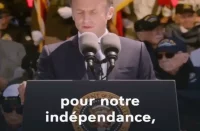“The first casualty of war is the truth” said American Senator Hiram Johnson.
“In time of war, when truth is so precious, it must be attended by a bodyguard of lies” – Winston Churchill.
If nothing else the world’s media have proved those two aphorisms in spades as the coverage of the Libya “revolution” so amply demonstrates.
In the beginning, Muammar Gaddafi was being overthrown and it would take a few days. Then he rebounded. Then the UN joined in and as of today, no one really knows what the hell is going on. Who in the media is one to believe?
The latest line is that Gaddafi is not that a bad guy after all which is fortified by a rambling release from the strong man himself claiming that he has kept Libyan “free” and well educated, cared for and covered for medical problems. In fact, when you see how he runs things through local councils, why he’s a paragon of democracy.
The UN Security Council, which is usually known for its shyness when it comes to interfering in other nations problems, was quick off the mark. On 26 February it voted unanimously in a resolution to impose strict sanctions, including targeted travel bans against Gaddafi’s government, as well as to refer Gaddafi and other members of his regime to the International Criminal Court for investigation into allegations of brutality against civilians, which could constitute crimes against humanity in violation of international law.Then came the “no fly” zone which was intended to help the rebels – so far it’s failed.
What is interesting to me is the lack of a sober media outlet examining the issues. In fact the media is all over the lot with support for action by the New York Times and the Washington Post. Cant free editorials are hard to find.
Journalists, despite their breast beating, are scarcely independent when it comes to covering wars. If they are allowed into Libya, they are, in essence, “embedded” thus rendering them untrustworthy; if they are not inside Libya, they are said to be too far away from the action.
Let’s look at the main players.
The UK, which has scores to settle with Gaddafi has a hawkish Prime Minister, who’s in political trouble – an unsettling situation. In April 1984, in a siege outside the Libyan embassy in London’s St. James’s Square a London police officer, Yvonne Fletcher was shot and killed.The shooting cause the breakdown of diplomatic relations between the United Kingdom and Libya.
On Wednesday 21 December 1988, a Boeing 747–121 named Clipper Maid of the Seas over Lockerbie, Scotland,was destroyed by a bomb, killing all 243 passengers and 16 crew members. It took many years for Libya to make settlement funds available. In due course Libya demanded the return of the man who planted the bomb on medical grounds that were clearly spurious. Those memories run deep in the UK.
France, led by an unpopular president seeking re-election and a big time user of Libyan oil is in the thick of it. It’s hard not to remember 1956 when France joined the UK and Israel in a conspiracy to dethrone Egypt’s president Nasser.
There are a number of things that a free and honest media would be doing such as asking a number of questions.Leaving aside history,why is the UK suddenly so concerned about freedom of Libyans? Could it be that with North Sea Oil in jeopardy by old age, and a minority Prime Minister losing popularity becoming have something to do with the almost obscene hurry to rescue Libya from Gaddafi? What’s happening with the US whose president and cabinet seem confused about what to do? Do they use land forces? If so, where from? They’re already using reserve soldiers as it is.What is the objective here? To help Libyans get their freedom? If that’s the objective of the UN Security Council Force why don’t they hit North Korea?
Where the hell is the serious minded media to bring forth the facts and rational propositions?
In fact, the press is largely bought and paid for. The mass media is controlled by a few corporations narrowly owned and it comes as no surprise I’m sure to know that they are models of discredited right wing philosophy. Back to that point in a moment.
War time often brings forward journalists that become very popular with the citizens of the combatants who are being fed what the government wants them to read. The great correspondents of World War II, Murrow, Shirer, Ernie Pyle and so on, self censored and one can understand why. There was no equality between Hitler and Churchill – it wasn’t an “on the one hand, on the other hand situation”. Their countries were at war.
What is troubling is that this self-censorship prevails when the US are not at war but have some soldiers in harm’s way. It seems to me that when the US goes into action, whatever the reason. criticism is muted. Surely that’s when an inquisitive media is most needed.
The real problem began with the Japanese attack on Pearl Harbour since that was the last time a man in striped trousers presented a declaration of war to another man in striped trousers. From that moment until today the media is loath to report incisively whenever their country has troops in harm’s way. When, as with Iraq II, Afghanistan, Vietnam and others part of the motive, indeed the entire motive is not removing what is seen as a military threat but an opportunity to bring “democracy” to the enemy country, democracy as seen by the politicians in charge and a media that is controlled by the media big boys who define democracy as a government that is fond of their sort of people.
It’s naïve in the extreme to assume that a media that supports a government with words and money doesn’t expect a pay-off.
The reason the pay-off is not reported is simple and subtle. There is no need for a powerful publisher to tell his editors what he wants to see in his papers or on TV. Similarly, editorial writers and “journalists, who have families, mortgages and kids at college don’t need to be reminded of what will be printed and what won’t.
Having been fired three times for saying what’s unpopular on air, I’m familiar with the “process” – the decision first, the phony reasons second.
The ray of hope is the internet and the private blogger but I wouldn’t hold my breath until governments take care of that nuisance with the firm support of the press barons.
Source: Strategic Culture Foundation














Comments